Horror in Ukraine Hits Close to Home for Md. Lawmaker
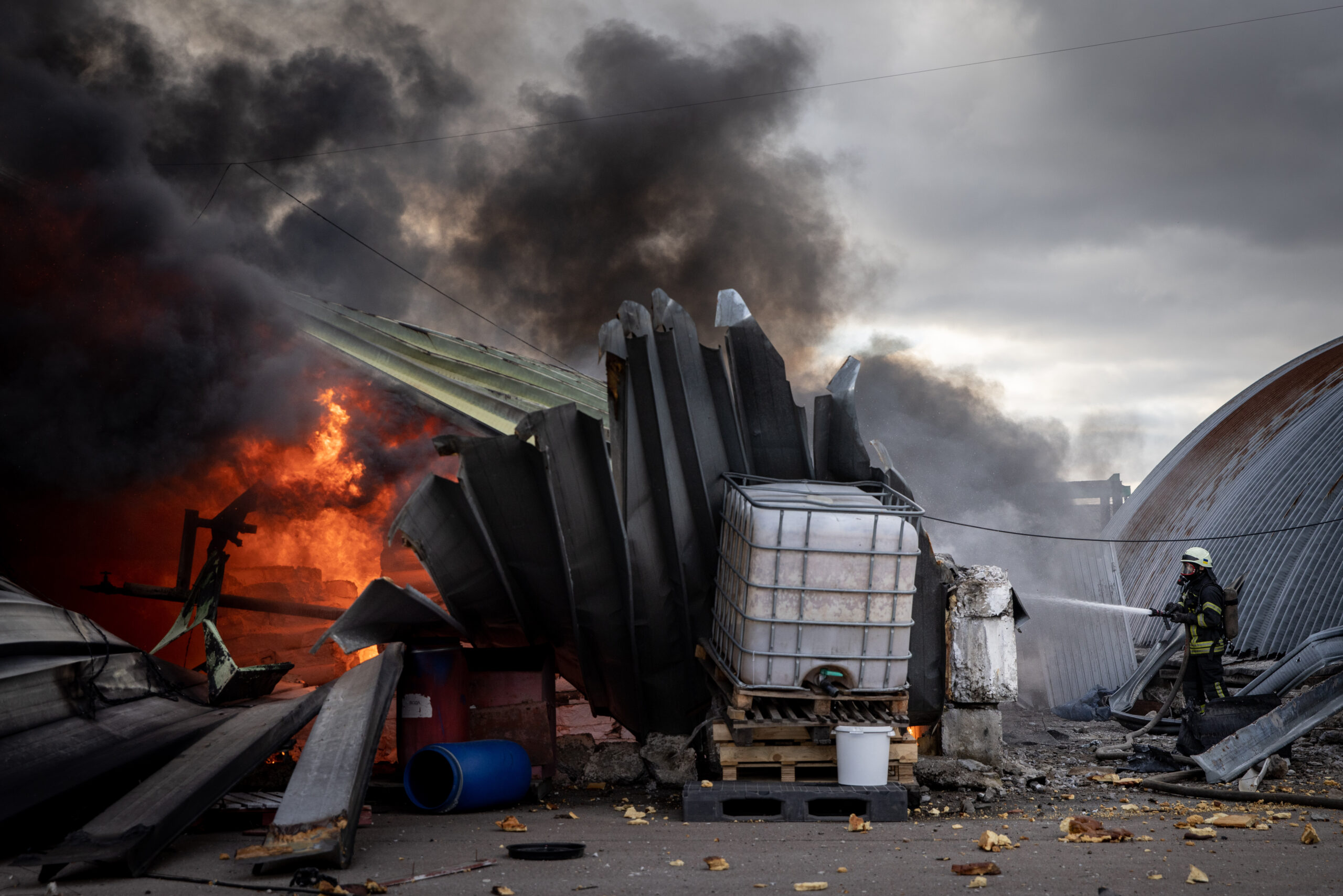
Since Russia invaded Ukraine 3 1/2 weeks ago, several members of the Maryland General Assembly have taken to wearing lapel pins of the Ukrainian flag.
Del. Kirill Reznik wears his a little closer to his heart.
Reznik, a Montgomery County Democrat, was born in Kyiv in 1974, and immigrated to the U.S. with his family when he was 4 years old. While much of the world is watching the destruction in Ukraine, the humanitarian crisis it has spawned and the millions of frightened refugees seeking to flee the country, the international emergency has considerably more resonance for Reznik.
“Having been born there, it’s really devastating,” he said in an interview.
Reznik has only “flashes of memories” of living in Ukraine — like going to a park with his grandfather. And he no longer has any family in the country — though his 81-year-old mother and his sister-in-law, who is also a Ukrainian émigré, still have friends there and are checking in with them to the extent that they can.
But he finds himself following the Russian aggression obsessively. He Googles constantly and checks news feeds to monitor the fate of the neighborhood where his family lived, near a water park, which he came to know as an adult doing international development work.
“It absolutely resonates,” Reznik said. “There is a piece of you there, and your heart breaks. Your heart breaks for the people, knowing what they’ve gone through for the last 30 years to get a functioning government.”
And he feels a special kinship with the Ukrainians who are fleeing the country now.
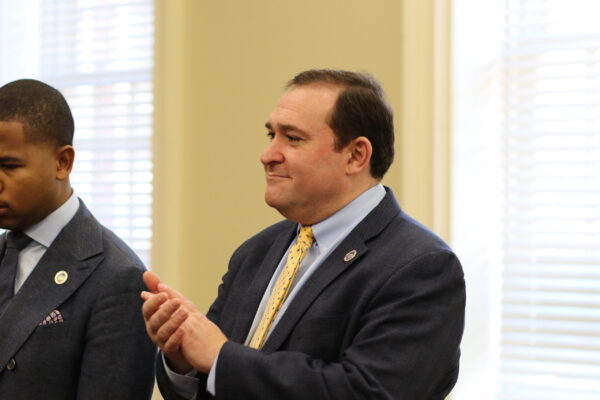
Del. Kirill Reznik (D-Montgomery). Photo by Danielle E. Gaines.
Reznik’s refugee experience was a little bit different. Ukraine was part of the Soviet Union when he was a boy, and his family was Jewish — a particular misery for people living under Soviet rule. Reznik takes pride in knowing that Ukrainian President Volodymyr Zelenskyy is Jewish — the only Jewish world leader outside of Israel.
“From a sociological point of view, there’s a level of discomfort,” he says, speaking about his own perspective. “Are you Ukrainian, or are you Jewish? It’s a country with a history of anti-Semitism.”
Reznik says his family felt intense pressure from the Soviet government — his grandfather was in prison for a time for alleged misdeeds Reznik isn’t entirely sure about, and his parents were constantly dealing with meddling local officials.
“In the Soviet Union, you either broke the law and survived, or you didn’t,” he observed.
Reznik’s father was a dental technician, and his mother was an architect, but they were constantly facing political oppression and economic privation. So when U.S. leaders in the mid-1970’s moved to make it easier to immigrate from socialist countries, and paid particular attention to the plight of Soviet Jews, Reznik’s family applied for exit visas.
They didn’t have a plan. They didn’t even know initially where they were going. They just wanted out.
“Externally displaced people don’t have a lot of choices,” Reznik said.
Even after getting their exit visas, it took time for the family to leave the Soviet Union. In the meantime, Reznik recalled, his parents lost their jobs. What little possessions of value they owned, like old czarist coins, were confiscated by government officials.
Reznik retains some memories of the experience — like taking a train to Vienna and panicking when his father got off at one station to smoke a cigarette just as the train was pulling away. He remembers being greeted by U.S. officials in Vienna and being directed to Rome, where the family waited for about a month.
Eventually, the family of five — which included Reznik’s 8-year-old brother and his maternal grandfather, along with his parents — was sponsored by the Jewish Federation of Miami, and won permission to immigrate to the U.S. They flew to New York, where his parents were struck by the fact that government officials there gave them maps, the first time they could recall officials giving them anything, and then to Miami. They had no money and only spoke a few words of English.
Reznik’s family was put up in an old Miami Beach hotel for a week — this was 1978, well before the city’s Art Deco district became a moneyed international tourist destination with a glamorous party scene. But after a week, to their surprise, they were told that they had to find a place of their own to live. His desperate parents took a walk to try to figure out what to do.
“Knowing my parents, they were arguing very loudly” in Russian, Reznik laughed. But that paid off — an older woman overheard them, spoke to them in Russian, and told them she knew of a one-bedroom apartment available in her apartment building.
“For a Soviet family of 5, that’s just what we’re looking for,” Reznik said.
Eventually, his father found a job as a dental technician. Later, his parents started a dental equipment business.
In 1984, when Reznik was in 5th grade, his parents became U.S. citizens, attending a mass swearing-in ceremony at the Orange Bowl in Miami. Reznik was not allowed to attend himself, but their citizenship would transfer to him.
“I remember as a 5th grader, watching the clock, waiting for the time when I would be a U.S. citizen,” he said.
‘It’s like the blitz of 1941’
It may only be a coincidence, but Reznik studied international relations in college. He got a master’s degree from American University in international peace and conflict resolution. In addition to serving in the legislature since 2007, he’s now an international development consultant and a contractor for USAID, specializing in Eastern European investments.
Reznik doesn’t remember speaking Russian as a little boy — “I don’t remember not speaking English,” he says — but he can still speak Russian now “with a heavy American accent. I don’t understand more technical stuff. But I can carry on a conversation.”
In his international development work, Reznik has visited Ukraine — and his family’s old neighborhood — several times. It’s hard to square his impressions of Kyiv with the devastation he’s seeing now.
“It’s like the blitz of 1941,” he said, speaking of the protracted Nazi bombing of the United Kingdom.
Reznik reflects on his own experience as an immigrant and is glad that neighboring countries, with the aid and support of the U.S. government, are welcoming Ukrainian refugees. But it does make him think about “the hypocrisy of the American immigration system,” as it tries to keep Latin American émigrés out.
Reznik says his colleagues in Annapolis have been “incredible” since Russia invaded Ukraine, expressing concern for his family and asking about his history. They’ve also asked what they can do to help.
Reznik cites the legislation pulling the state government’s pension plan investments from Russia as a good start. He has also sponsored a resolution expressing solidarity with the people of Ukraine.
“For everyone, we do what we can,” Reznik said. “And we hope.”

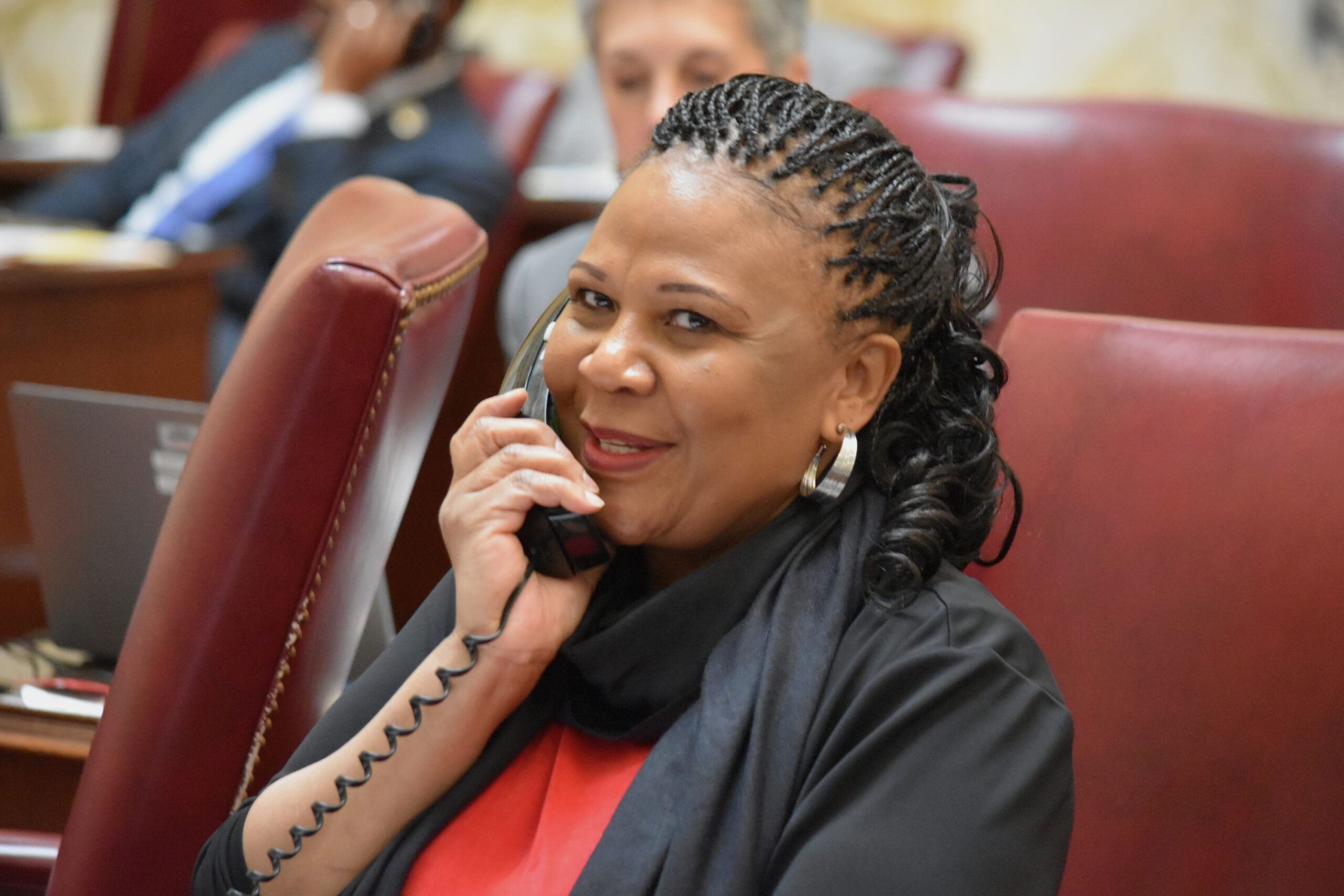
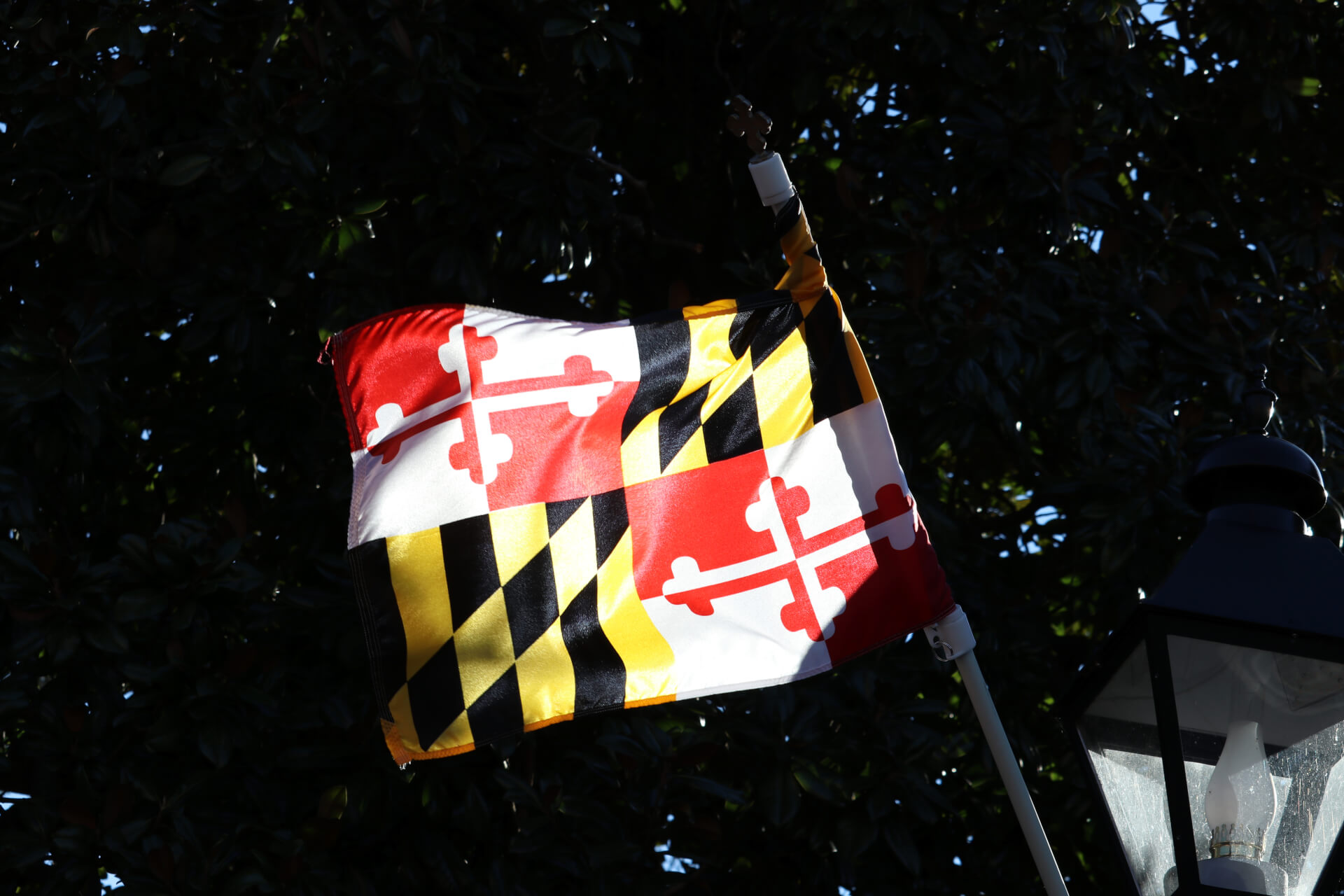
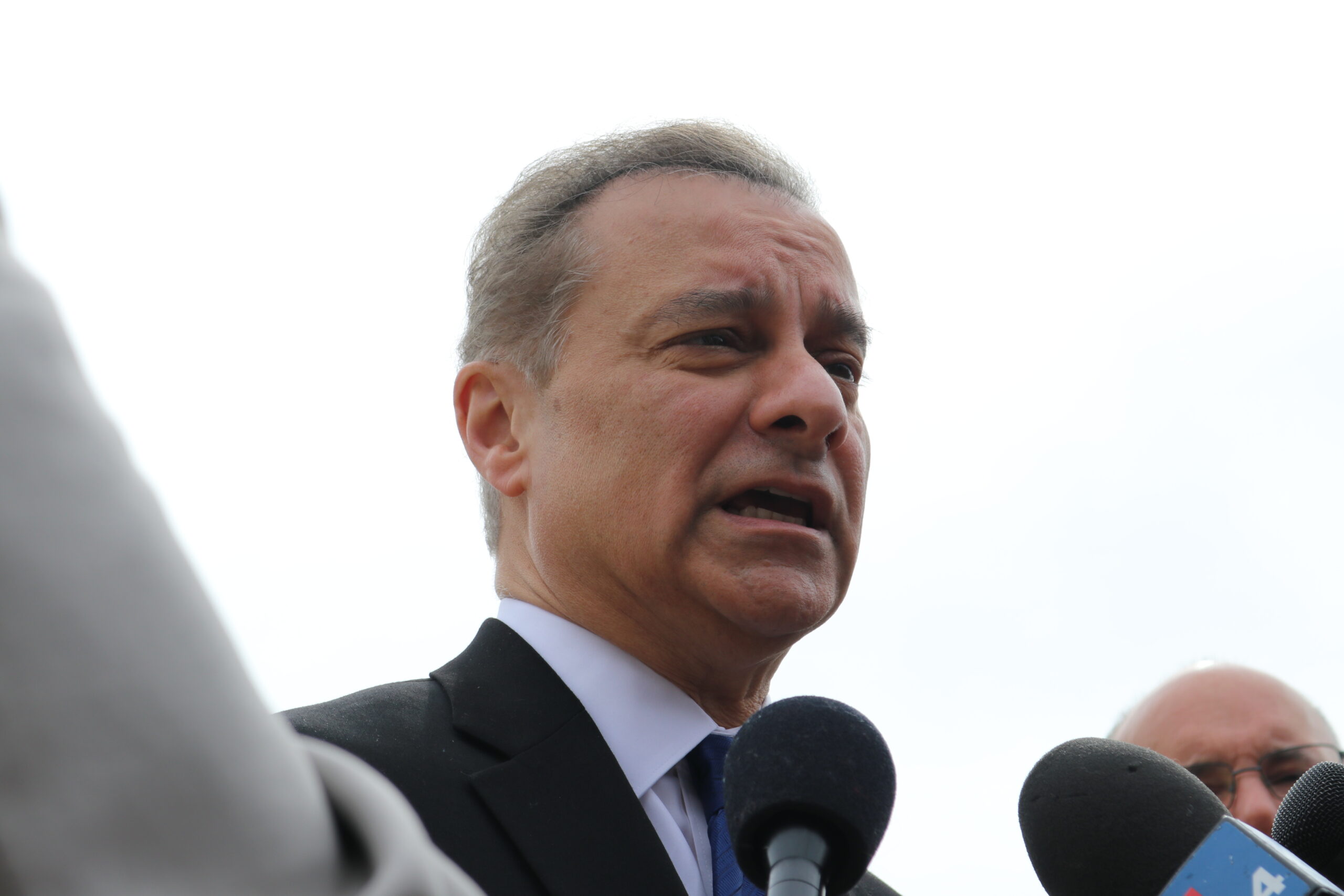
 Creative Commons Attribution
Creative Commons Attribution